OVER THE RAINBOW
Last Sunday, I attended the Great American Songbook Benefit Concert at Congregation Beth Ahm, which supports the JSL Program for Holocaust Survivors & Families. Talented jazz pianist Cliff Monear and his band performed songs by Jewish American composers, while three dynamic Cantors from our community, Penny Steyer, Daniel Gross and David Propis, brought the music to life with emotion and style.
The musicians performed songs created by Jewish composers with great flair. Along with the rest of the audience, I was overcome with emotion when Cantor Propis explained the history of the song Somewhere Over the Rainbow and its roots in the Holocaust before performing it for a room filled with Holocaust Survivors. The song holds profound, deeply symbolic meaning, weaving themes of hope, longing, and escape from suffering. I was transported back in history, yet at the same time moved by the weight of today’s horrific realities.
The song was written in 1938 for The Wizard of Oz by Harold Arlen (music) and Yip Harburg (lyrics), both of whom were Jewish. Harburg was the son of Russian Jewish immigrants. Over time, it became infused with layered cultural significance, particularly for Jewish communities during and after the Holocaust. The dream of escaping ‘somewhere over the rainbow, way up high’ echoes the longing of Jews facing persecution in Europe, yearning for a world free from fear and oppression. Today, that music remains just as poignant, especially as antisemitism continues to rise globally. The song has become a symbol of survival, a way to imagine a hopeful future when none seems possible. In Jewish tradition, the rainbow is a divine promise, a sign of G-d’s covenant after the flood. In this context, the rainbow transcends mere imagery. It becomes a form of prayer resonating now more than ever.
This song, touches many chords in our culture, including representing the contributions of Jewish artists to our American identity. It is often sung at Holocaust remembrance events. And that makes perfect sense. It is one of those rare pieces of music that transcends melody and lyrics. Somewhere Over the Rainbow speaks to something primal, a universal longing for light after darkness. For Holocaust survivors in the audience, that emotion was no distant notion; it was etched into every breath they took.
To think of those who endured the camps, the ghettos, the unimaginable losses, hearing this simple, hopeful song about a place “where troubles melt like lemon drops” Is almost unbearably poignant. That dream became a form of spiritual resistance. Just daring to believe in the future was itself an act of defiance. This song became a bridge between past and future, suffering and healing, Europe and America.
And to hear it played in a synagogue with jazz, a genre born of struggle, resilience, and reinvention, added yet another layer. The music seemed to bridge generations, its voice timeless. At one point, the entire room fell into a profound silence. There’s something incredibly human about that stillness, when every soul seems to come together feeling the same ache, the same memory, the same fragile hope. Our tears weren’t just sorrow; they were filled with remembrance, grief, and even gratitude that voices of the past, both real and symbolic, still resonate within us.
The afternoon wasn’t solemn. I hummed along as the cantors brought joy, singing upbeat love songs, even a song by Allan Sherman. My father used to collect his albums. I know the lyrics by heart. Memory is funny like that. It sneaks in, bringing you back in time just when you need it most.
As I reflect on that afternoon, I believe that music may be the only thing capable of bearing the immense weight of something as vast as the Holocaust, while still leaving room for joy and hope. Perhaps the tears that still come when I think about it are my way of saying, I remember, and I will never forget. Contributing to the Program for Holocaust Survivors & Families is deeply meaningful, and we greatly appreciate your support. https://jslmi.org/events/annual-fundraiser-for-holocaust-survivors-and-families/
Chag Pesach Sameach!
Wishing you a joyful and meaningful Passover filled with peace, freedom, and family. May all the hostages be released to share the holidays with their families.
Shabbat Shalom.






Leave a Reply